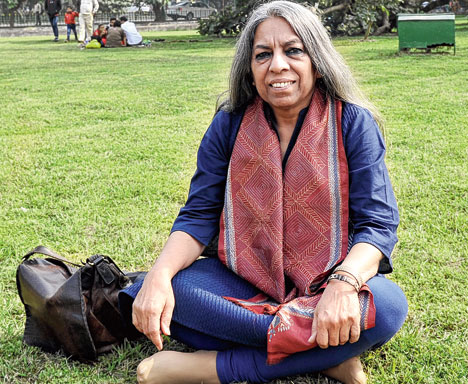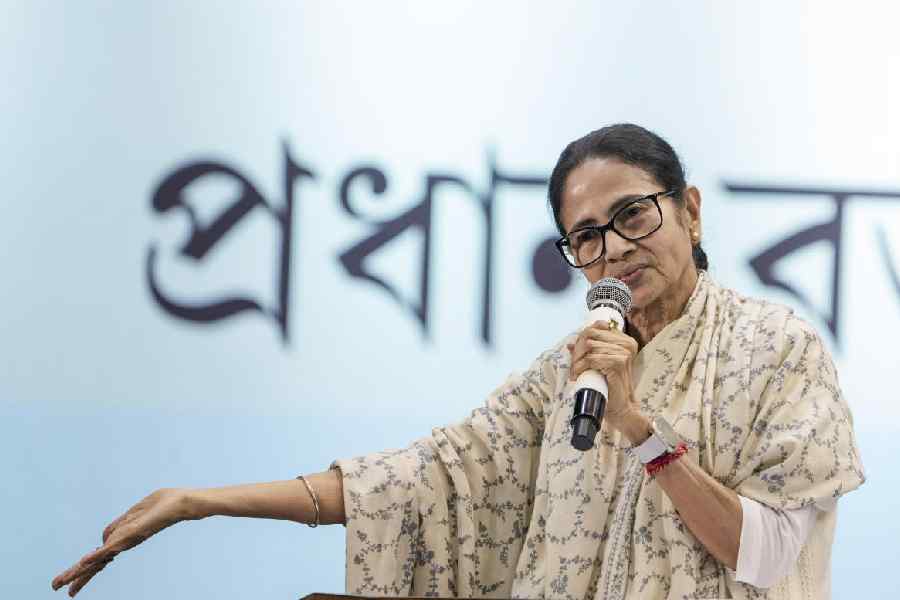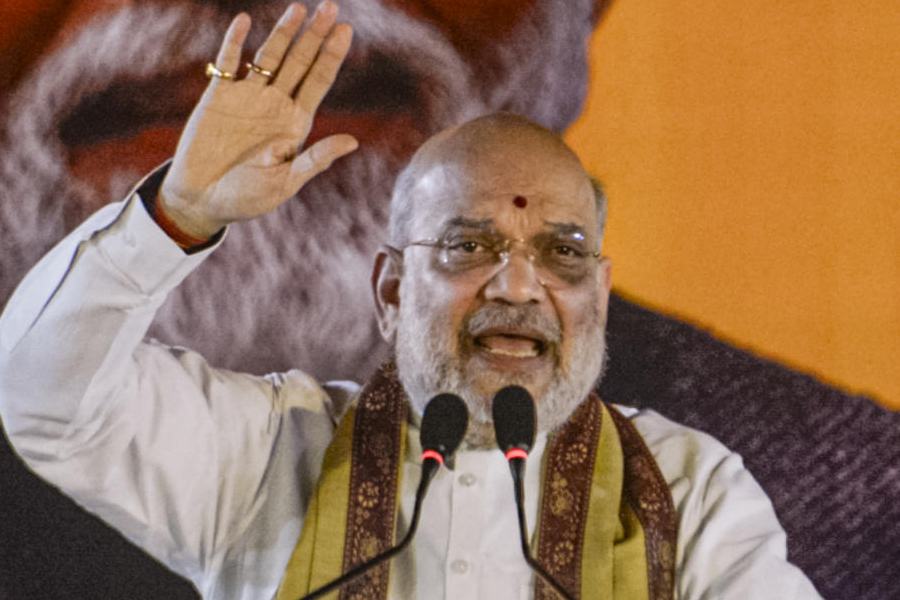
Victoria Memorial: In 1984, Urvashi Butalia and Ritu Menon set up shop in Menon's garage to start something unheard of then: a feminist press. Three decades later, Kali for Women, that pioneering publishing house, is no more.
But its impulse is. Women's writing in India is alive and kicking. Kali, with its striking name and an equally striking goddess-eye logo, had something to do with that.
Sitting on the lawns of Victoria Memorial, where she was attending the Tata Steel Kolkata Literary Meet, co-organised by Victoria Memorial Hall in association with The Telegraph, Butalia spoke of her journey as a feminist publisher over the last 35 years, which coincide roughly with the latest phase of women's movement in the country. After Kali, she set up Zubaan, which continues to publish women's writing. It was never easy. But Butalia kept to the path. Now she seems to look at an uncertain future.
In the early Eighties, Butalia, who had been working with the marketing department of Zed Books in London but developing a list of women's books, felt that hardly anything was written by women then. Abroad, women's publishing houses had started - Virago, The Feminist Press - but nothing equivalent in India.
She thought she would do it herself. "I had to talk myself into it," she says. By that time she had met Menon, who had been working on a list of women's books for Vikas.
There was no money; only a couple of small grants. A Norwegian organisation had given a grant of Rs 1.4 lakh that led to a beautifully illustrated and much-read book: Radha Kumar's The History of Doing: An Illustrated Account of Movements for Women's Rights and Feminism in India, 1800-1990.
Butalia mentions with pride a collection of short stories translated into English from Indian languages: Truth Tales. "It had Stanadayini by Mahasveta Devi translated into English for the first time by Ella Datta, long before Gayatri Chakravorty Spivak's translation of the story," says Butalia. "We also published Bani Basu's story Pishima, when she was not so well-known."
"In between, we did some jugaad to keep things going." Kali put together books for the Festivals of India being held then. With that money, they could publish their own books, at about Rs 60,000 per book. "We didn't pay ourselves anything. The first employee we had was a man, Jose Anthony, who helped with the administration. He would always get letters addressing him as 'Madam'," says Butalia.
Eventually Kali moved out of the garage to a Hauz Khas address. "We grew from the women's movement and were also operating in a business environment," says Butalia. That was tough. "The openness to feminist literature was not there when Kali began." Women writers need more nurturing too. "Most feel what they are saying doesn't matter." (She herself feels so about her own writing, she adds with a laugh. Butalia is the author of The Other Side of Silence, an important work of the history on Partition.
"One important lesson for a feminist publisher is that you can't counter the existing narrative and then not create another narrative that is rich and varied," says Butalia. Publishing books in English was not enough, either. Women's writing had to be represented by the diversity of language, location, class, caste, religion. "We must publish unknown writers," says Butalia. "We must move out of our comfort zone. We have to address diversity, the changes in feminism, but also be inclusive."
Such politics, however, is difficult to accommodate within a business model. Within four/five years of the founding of Kali, other publishers had begun to realise there was a market for books by women, says Butalia. But Kali's books were not bestsellers, and though the firm kept overheads low, the going was tough.
In 2003, Butalia and Menon split. Butalia set up Zubaan and Menon, Women Unlimited. Zubaan in many ways looks like a true child of Kali. The spine of its list is similar to Kali's. The challenges are similar too. "Is our success our death?" wonders Butalia. It is a triumph for feminism when feminist literature is not required any more. But in the real world, costs have gone up, and Zubaan books do not sell more than 20,000 copies.
"Frankly, we don't know for how long we can sustain ourselves," says Butalia.
She takes strong exception to the suggestion that the women's movement has grown less robust. "The nature of the state has changed. The nature of protest has changed."










